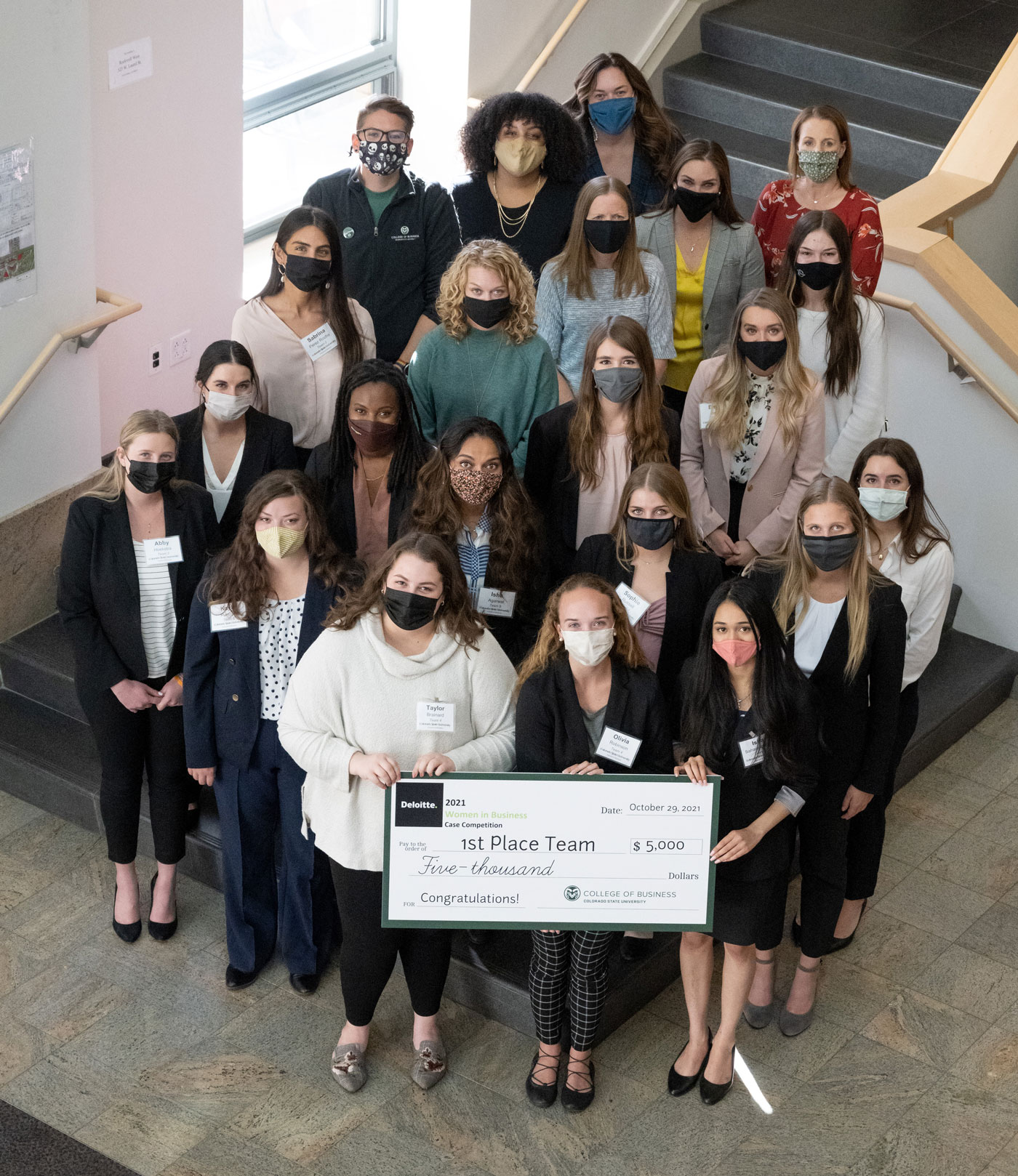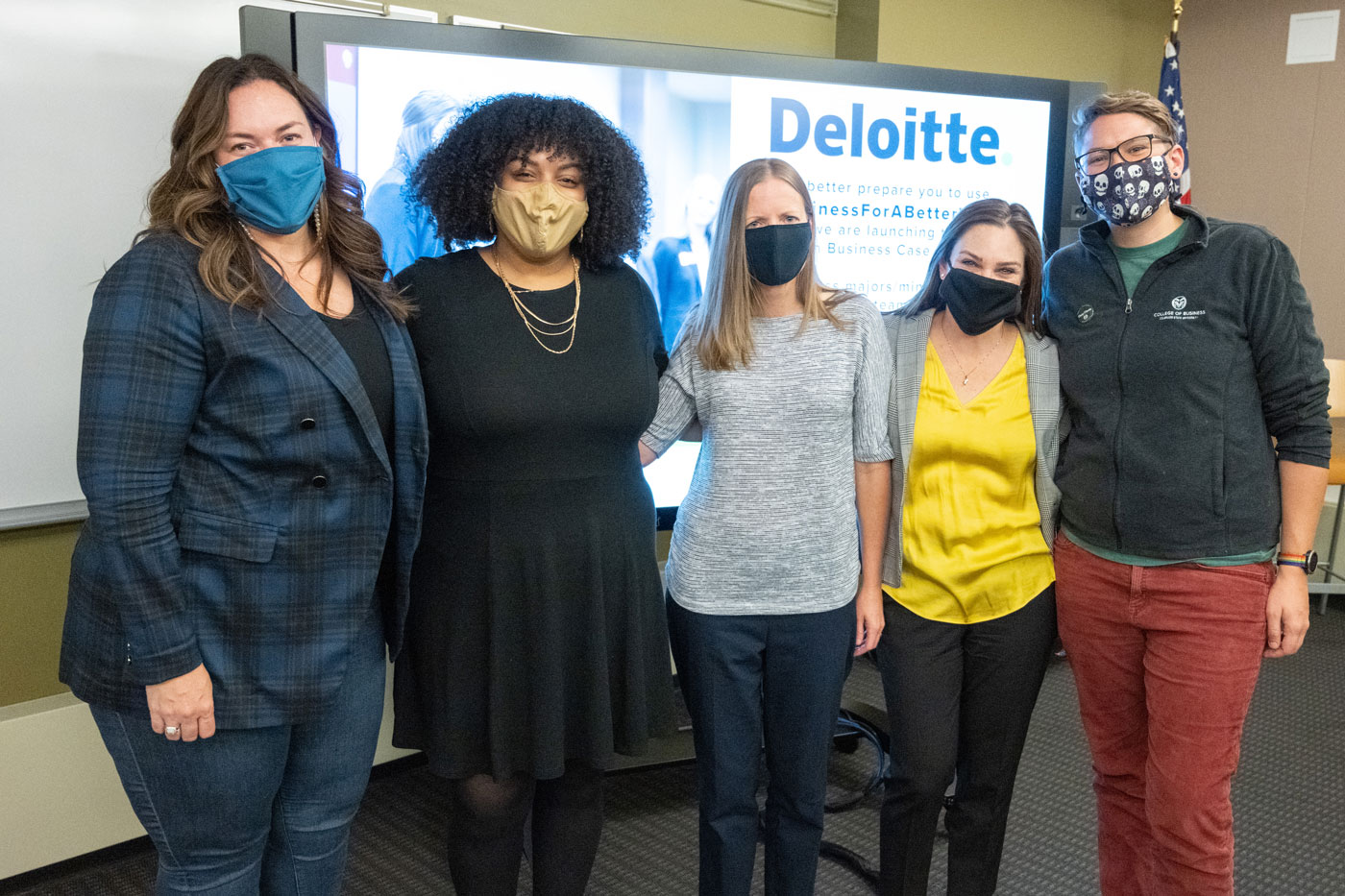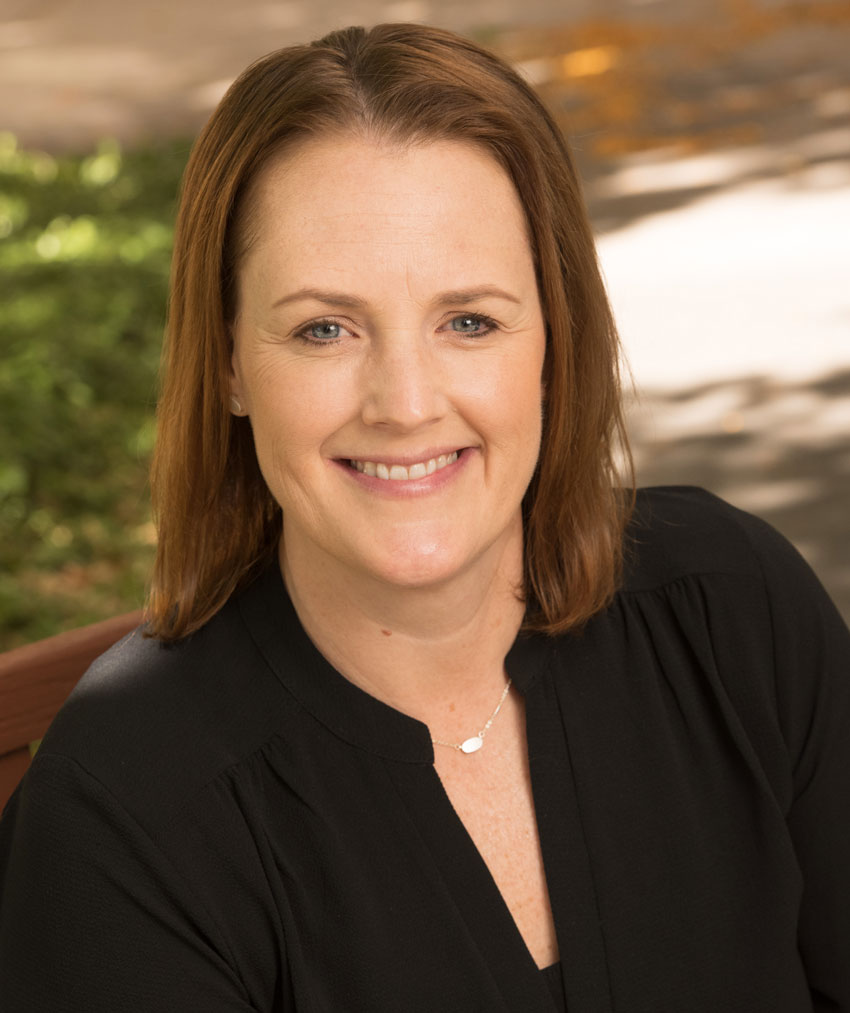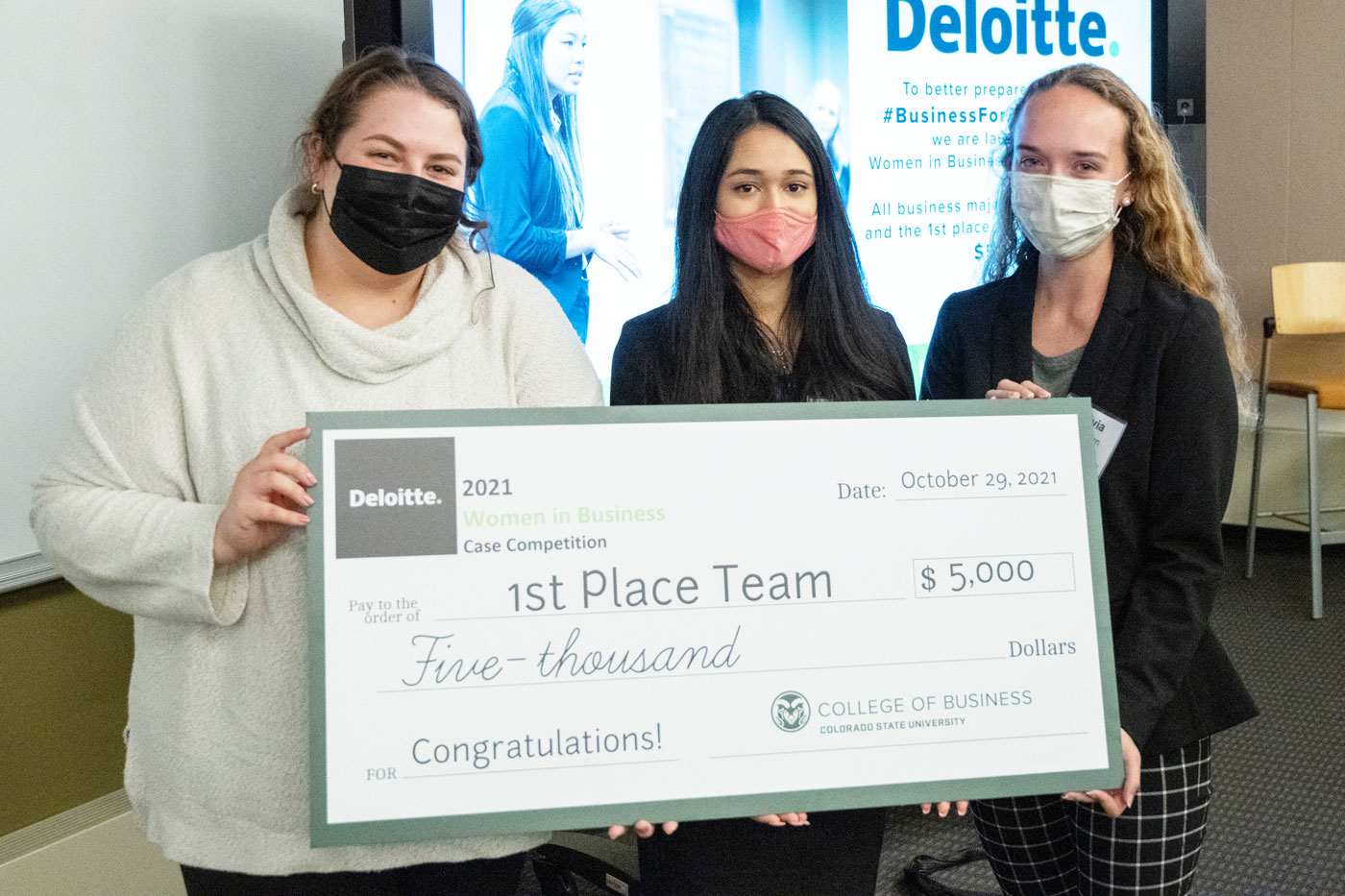
The team of three business students had already invested dozens of hours into brainstorming, research, problem solving, prep and practice when they stepped in front of the panel of five judges. Their task: to explain how they would help fix the gender bias in a major tech company’s AI hiring process – and mid-terms were on the horizon.
It was the final day of the Deloitte Women in Business Case Competition, a $5,000 first place prize was on the line, and Olivia Robinson, Isha Sahasrabudhe, and Taylor Brainard were nervous.
“We all had a little bit of the jitters,” said Brainard, “But, we were all more excited than nervous going in.”
The group had grown close, having spent two weeks preparing for this moment, and knew they were there for each other. They jumped in, arguing the benefits of promoting diversity in the workplace. From the moral and social implications of fostering a culture that values people’s differences and ensures everyone has equal access to employment opportunities, to the bottom-line business benefits of increasing innovation and team performance, the team explained their case.
By the time they had concluded their presentation, walking the judges through multiple solutions, explaining their approach to R&D and pointing out where they saw the greatest opportunities for change, the professional panel was impressed. But Brainard, Sahasrabudhe and Robinson’s team wasn’t the only group to leave an impression.
“They’re going to be amazing women in business, amazing advocates and amazing thought leaders.”
– Kelly Leger, case competition judge and managing director at Deloitte Digital

“We debated for almost an hour on the winner because it was that close and there were so many great ideas,” said Stacey Wilson, one of the competition judges and a College of Business accounting alumna.
“I thought the effort, and the preparation, and the solutioning, it was all very impressive,” said Wilson, who now serves as a managing director in Deloitte’s investment management practice. “It makes me more excited for what’s going to happen in the future once these women are entering the workforce.”
Wilson’s colleague and fellow case judge, Kelly Leger, a managing director at Deloitte Digital, saw direct parallels between the work the students were doing for the case competition and what they could expect to see in the professional world after graduation.
“It’s a great way to start preparing for what these students will do in corporate America, which is present and coalesce ideas in a formatted presentation and try to win over the execs you’re talking to on the other side of the table,” Leger said.
Ultimately, only one group could win, and the trio came away with the top prize.
“All of the judges on the panel are so up there in their careers and to have them talk to us, listen to our presentation, listen to what we had to say and then ask us questions about that, it was an absolute honor just to be there,” said Sahasrabudhe, a third year concentrating in computer information systems and accounting.

Early Career Impact
“Gender bias in the workplace has been around for a really long time and there’s slow progress around it,” said Career Management Center director Andrea Karapas, who helped organize the case competition along with CSU’s Women and Gender Advocacy Center.
“I think this helps build some momentum with this generation who is entering the workforce, to inspire them to make change, empower them to make change, and help them feel confident talking about bias,” Karapas said.
“We’re going to help students translate this experience onto their resumes and into job interviews. The fact that it’s a topic relating to diversity, equity and inclusion in business, that adds another element that would be impressive to employers.”
– Andrea Karapas, Career Management Center director

For Brainard, a third year concentrating in marketing and organization and innovation management, her time in the College of Business has placed equity at the heart of her education.
“CSU has put such an emphasis on ethical business. They’re always bringing in ethical business speakers and partners, and so it’s definitely made an impact,” said Brainard. “It’s just always front of mind, and I feel like if I hadn’t gone to CSU it definitely wouldn’t have been such an important piece for me.”

Brainard has found herself asking about how companies are taking on key workplace issues during job interviews.
“It’s something that I always want to ask about, like, ‘In what ways are the leaders in this company making an impact for women, making an impact for people of color?’” Brainard said.
This doesn’t surprise Karapas.
“Students are making values-based decisions on where they want to start their careers and they’re looking for companies that are going to be inclusive and provide a space and a culture where they can be their authentic selves and they’re going to be supported equitably,” she said.
“With my career, I want to focus on being a role model and inspiring other women.”
– Isha Sahasrabudhe, third year, computer information systems and accounting
In her work helping business majors find fulfilling careers, Karapas and her team have put students’ needs front and center.
“We see ourselves as a bridge, we connect students to opportunities with companies, so we want to make sure that that connection is a good connection,” Karapas said. “We’re trying to educate our employer partners about how to be more visible with what they’re doing around DEI.”
For Robinson, a senior concentrating in human resources and organization and innovation management, her time studying how to best support employees and employers has shaped what she’s looking for in a career of her own.
“I’m out the door in May and need to find a job,” said Robinson, whose HR internship with CSU helped clarify the importance of championing equity in the workplace. “When I think about where I want to work, a company’s culture and the diversity and equity initiatives they have in place are all important factors.”
As a student preparing for a career in tech, Sahasrabudhe has seen how the industry doesn’t have a lot of women, and she wants to serve as an example showing female students that they belong.
“With my career, I want to focus on being a role model and inspiring other women to join the computer information systems program and go into tech to break that gender barrier,” Sahasrabudhe said.
Reflecting on What’s Next
Watching team after team of students present in the case competition, Kelly Leger was reminded of when she was a student, stressed about job interviews and the next step in her career. Her mom had a simple response to the concern that she would be in over her head: “But, they’ll train you.”
“It was such a lightbulb moment, like, ‘Ohhh, I’m not going to know everything when I come out of college?’” Leger said. “Your journey isn’t done when you finish college, it’s just beginning, so make sure that you’re going for any position that you find interesting.”
“It’s great to see where these students are already,” she said. “They’re going to be amazing women in business, amazing advocates and amazing thought leaders.”